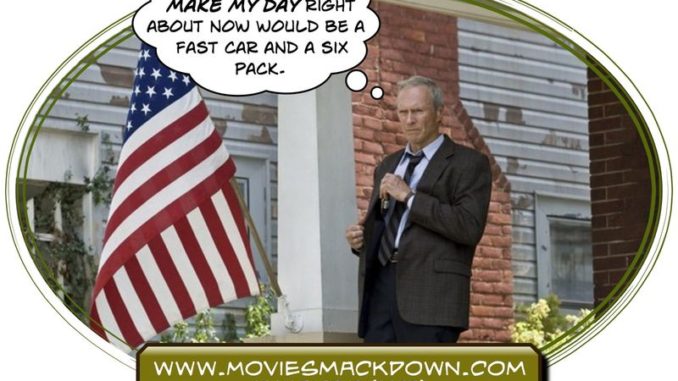
 The Smackdown
The Smackdown
Rumor has it that Gran Torino will be the last film that Clint Eastwood acts in. In it, he basically plays a version of his tough-guy screen characters (think Harry Callahan) who, at the end of his life, has to deal with the fact that so much of who he is derives from who he’s killed. Thirty-two years ago, another tough guy — John Wayne — acted in his last film, The Shootist, where he also played a character who, at the end of his life, had to deal with the violence that had surrounded his days on Earth. Both of these legendary tough-guys are portrayed as being brought down by disease, having cheated the bloody ravages they’ve inflicted on others, as they close out their screen personas in projects that say as much about their full careers as the actual films of the moment. Lending weight to the efforts is the added fact that both of these films parallel the goodbye to these iconic characters by playing them out against times that are changing: Detroit for Eastwood and the Wild West for Wayne.
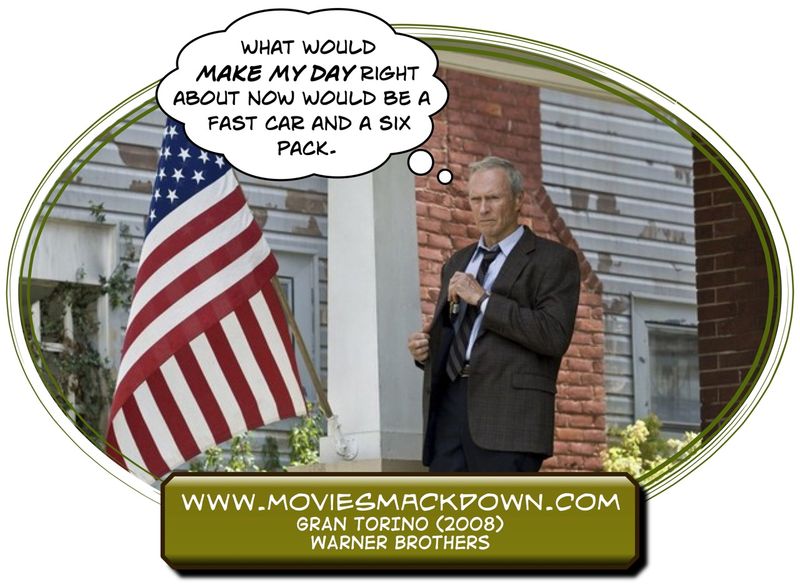
The Challenger
In what may be his swan song to acting, Clint Eastwood directs himself in Gran Torino. He plays Walt Kowalski, a tormented Korean War vet and a character with a lot of relevance today, given that he’s also a retired auto-plant worker, still living in Detroit, and wondering where and when it was that the whole thing fell apart. After his wife dies, it’s just Walt, the family he really doesn’t connect with, and the next door neighbors who are all Hmong immigrants. The story was written, not by some A-lister, but by Nick Schenk, a Minnesota wannabe who wrote the whole thing with pen and paper sitting in a bar, and then had Eastwood pretty much shoot every damn word of it. Part of what attracted Eastwood, no doubt, is how beautifully it allows him to give us a reprise of the Dirty Harry character, but wrap it in a bloody bow of human redemption at the same time. The narrative has Walt at his peevish best, hurling insults at the neighbors and his family, only to find himself in an odd-friendship with the Hmong kid next door who he catches trying to steal his prized Gran Torino, a car he himself had a hand in making back in the day when Detroit ruled the world. Yet, violence and gangs prevent the film from being just a sweet or comic story of friendship; this is Clint’s farewell to a character-type, and he needs to go out in a way that pays off how he got in this world in the first place. I’ll say no more on that score…
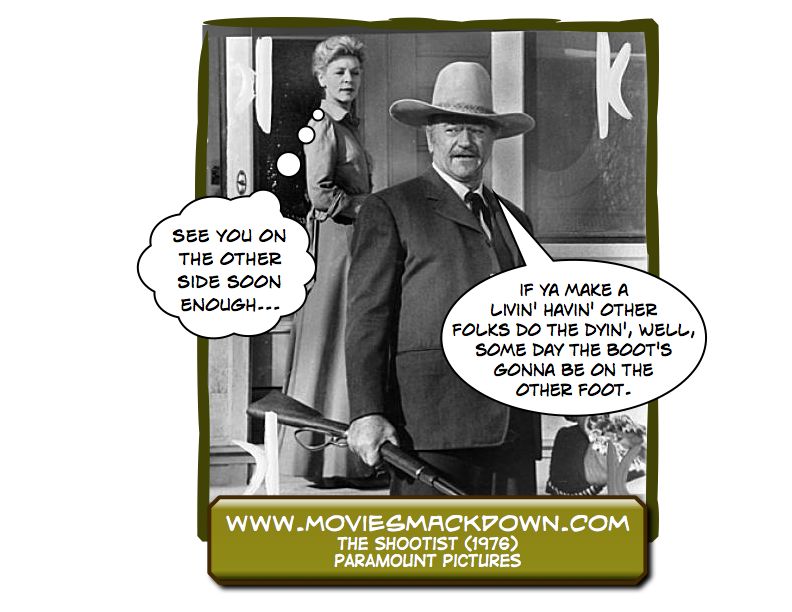
The Defending Champion
John Wayne actually had to fight to be cast in the title character of J.B. Books, legend has it, because the producers really wanted George C. Scott for the role. Books is a legendary gunfighter, a Shootist, who’s dying of prostate cancer. Arriving in Carson City in 1901, Books gets the bad medical news, then takes a room to settle back and die in peace. He’s staying with a widow, Bond Rogers, played by Lauren Bacall, and her son Gillom Rogers, played by Ron Howard. You can imagine what happens next. This news is too hot to handle, and soon enough, the vultures are circling. Some of them want to exploit his life (or his death), and then there are the men who’d like to make a name for themselves by killing a famous killer. The town is a place where horses are still the order of the day, but there are newfangled cars making an appearance. Change is in the air here. And a man who lived by the gun inevitably will have to die by the gun.
The Scorecard
It’s of note here that Don Siegel directed John Wayne in The Shootist and later did the same with Clint Eastwood in Dirty Harry. Maybe Clint learned a thing or two about giving a famous character a grace note, but in any case, both of these films have a sensitivity to the actors and their personas that makes them important to watch.
As it turned out, Wayne died three years after his last film. Eastwood appears to be going strong and seems to simply be retiring from on-screen to concentrate on directing only. But both actors have given us a chance to see them as they face the end (or in movie terms, the all-important third act). It’s inevitable. And it’s sad. It’s enough to make you channel Eastwood’s gunfighter in Unforgiven when he says, “It’s a hard thing killing a man.” That’s right, when it comes to
murder, no matter what the reasons, nobody really gets out alive.
These films really do have so much in common. Dying of an incurable disease. Check. Tormented by the cost of the lives they’ve lived. Check. Bonding with strangers at the end. Check. Making a difference in a young man’s life…
Back in Wayne’s goodbye, the role of “The Kid” was Ron Howard, just coming into his run on Happy Days and American Graffiti. In Eastwood’s, it’s a fresh new face, Bee Vang. The former film says a lot about what America was like, and the latter film says a lot about what it’s becoming. On relevance, you have to go with Gran Torino. This is a film that really tries to grapple (not always perfectly) with the multi-cultural society we’ve become.
When all is said and done, however, Gran Torino will not go down in movie history as one of Eastwood’s best films while The Shootist probably will be remembered as one of Wayne’s top efforts.
The Decision
There are some great moments in The Shootist — the one where Books gets the news of his impending demise by cancer from an old friend, and later, the one where he prepares for his final battle. In between, however, there are more than a few sloppy low-points that drag the film down. It’s the opposite situation with Gran Torino. In this film, there are a few places where Eastwood might have been advised to work on the script a bit longer with his no-doubt deliriously happy neophyte screenwriter. But, overall, the narrative thread keeps chugging ahead, and the insights about life, death, and redemption simply can’t be denied their power.
Gran Torino has fewer high points than The Shootist but is, at the end of the day, a more solid overall film. Maybe it’s because I grew up after John Wayne’s best work as an actor and during the time of Clint Eastwood’s that I’m more affected by this recent work. That’s certainly possible. Still, that’s probably true for those of you reading this on the Internet. Saying goodbye to his character, the catch-phrases, and the grit is hard to watch, but that’s why you have to see Gran Torino. You’ll need closure. This is it.

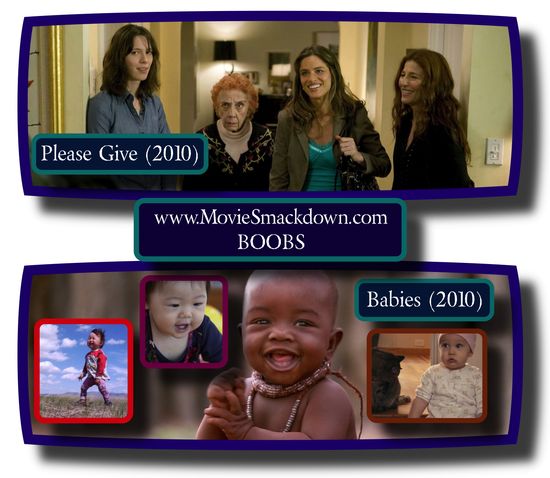
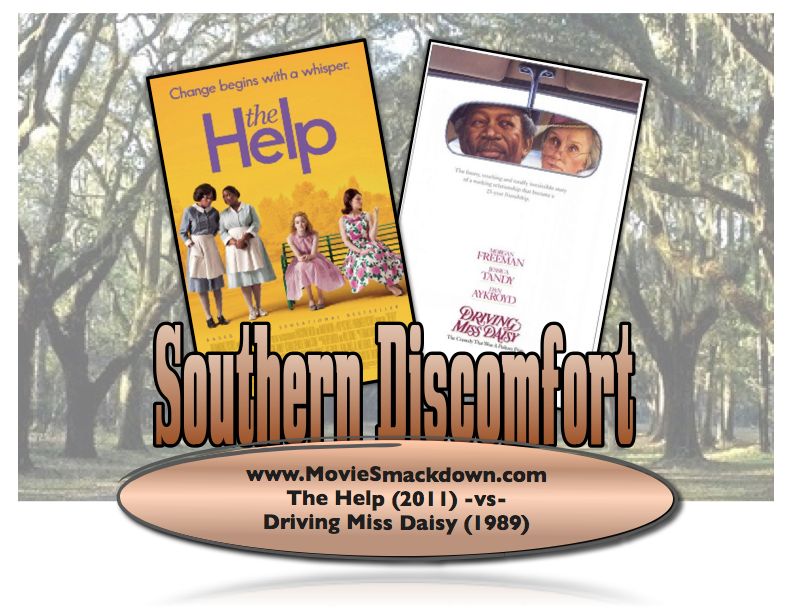

I love Eastwood in the classics, I even thought “Bridges of Madison County†was a great movie.Clints acting in itself was Ok, but a little to Dirty Harry meets Archie Bunker on steroids
Clint will always win. He’s just a total bad ass. Aging boxer or lost astronaut, I’ll pick Clint any day of the week.
I’m not old enough to remember John Wayne in this picture, but Clint Eastwood sure seems to pack a punch. I agree with your decision! Go Clint!!
One point of contention — Walt Kowalski is NOT a Harry Callahan tough guy. The closest comparison is Gunnery Sergeant Tom Highway, leading up to and leading Marines in the invasion of Granada in Heartbreak Ridge.
I was just flipping through the New York Times “Guide to the Best 1000 Movies Ever Made.” Here’s what Richard Eder had to say about “The Shootist.”
“The attitude of Books toward his own passing — the crucial point in the whole structure — is quite unclear. Is the extinction of his own violent way of life something he accepts or resists? Mr. Siegel allows him to point both ways, and the amiguity takes the bone out of the movie and it collapses.”
Ouch… but, I think looking back now, maybe he was right.
Bryce: I remember “The Shootist” and enjoyed it, but you indicate “Gran Torino” may be even more special. I thought as much while I sat through the previews before the film in my latest Smackdown!
I can’t wait to see “Gran Torino.”